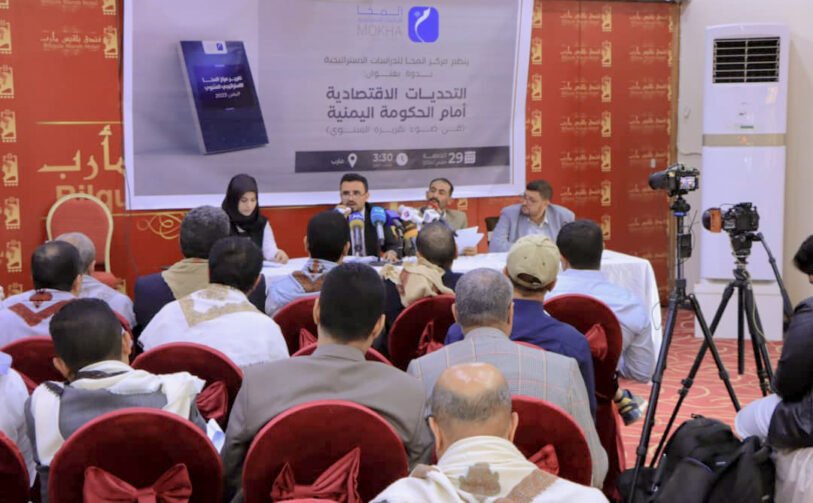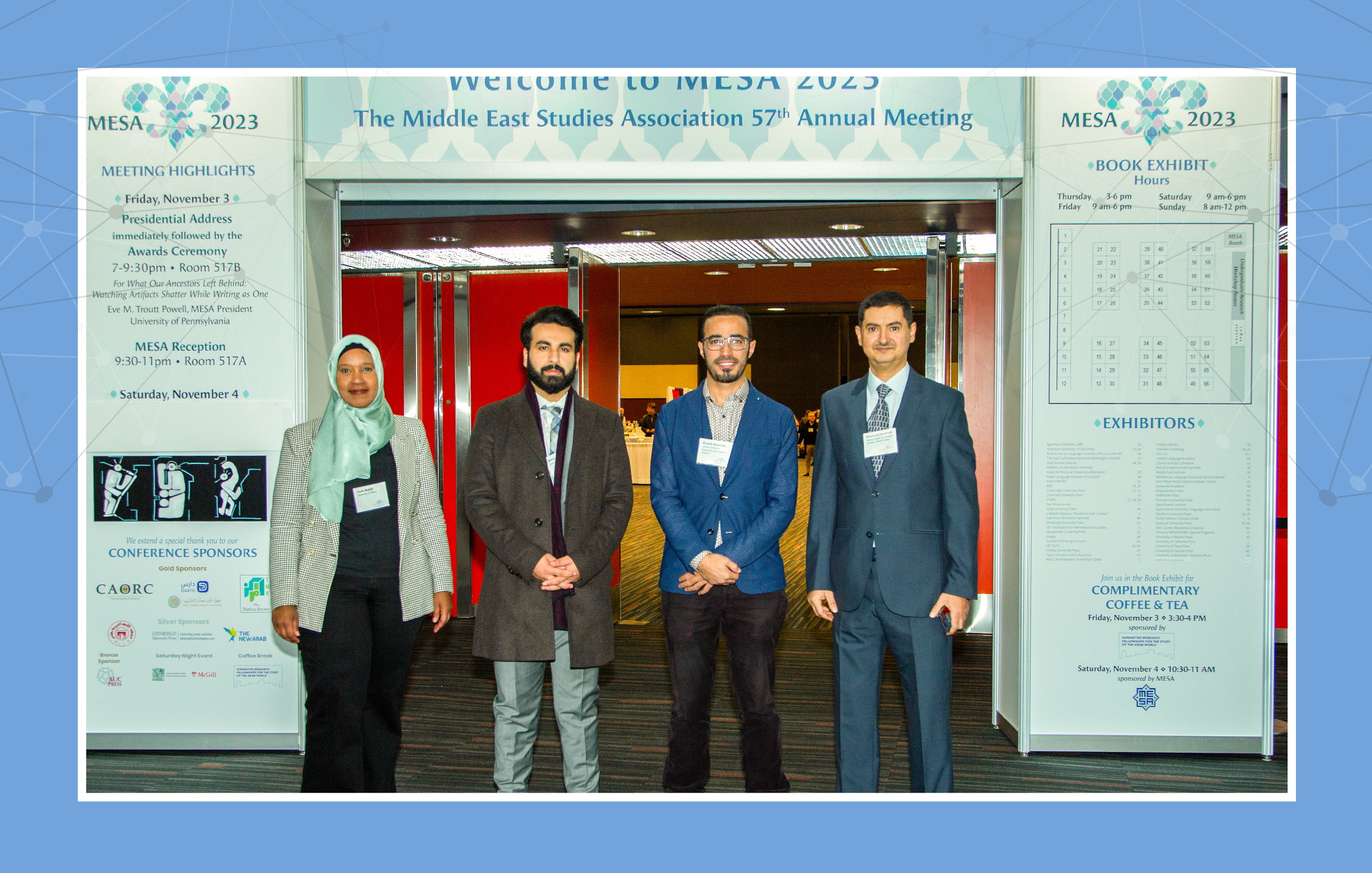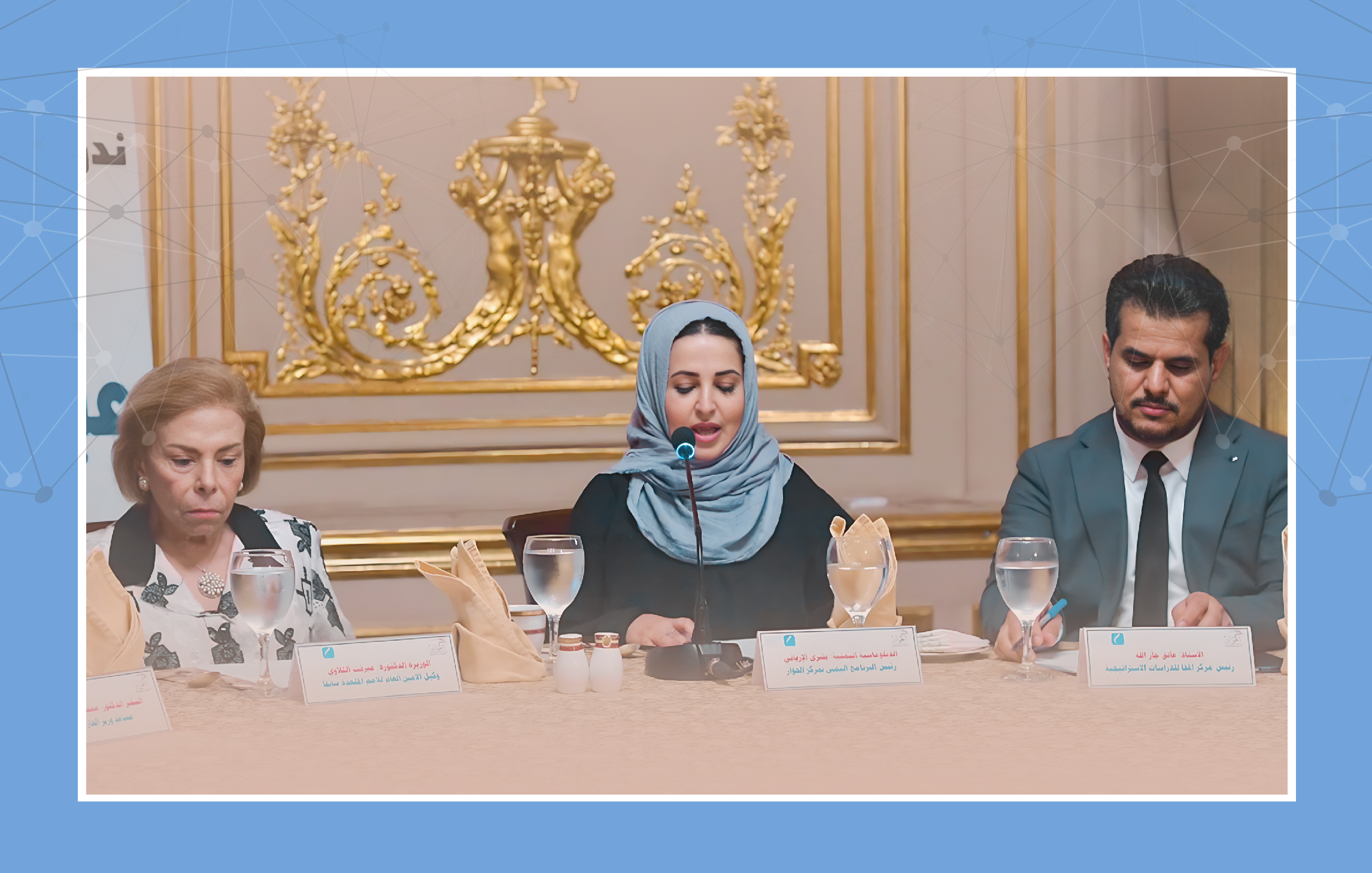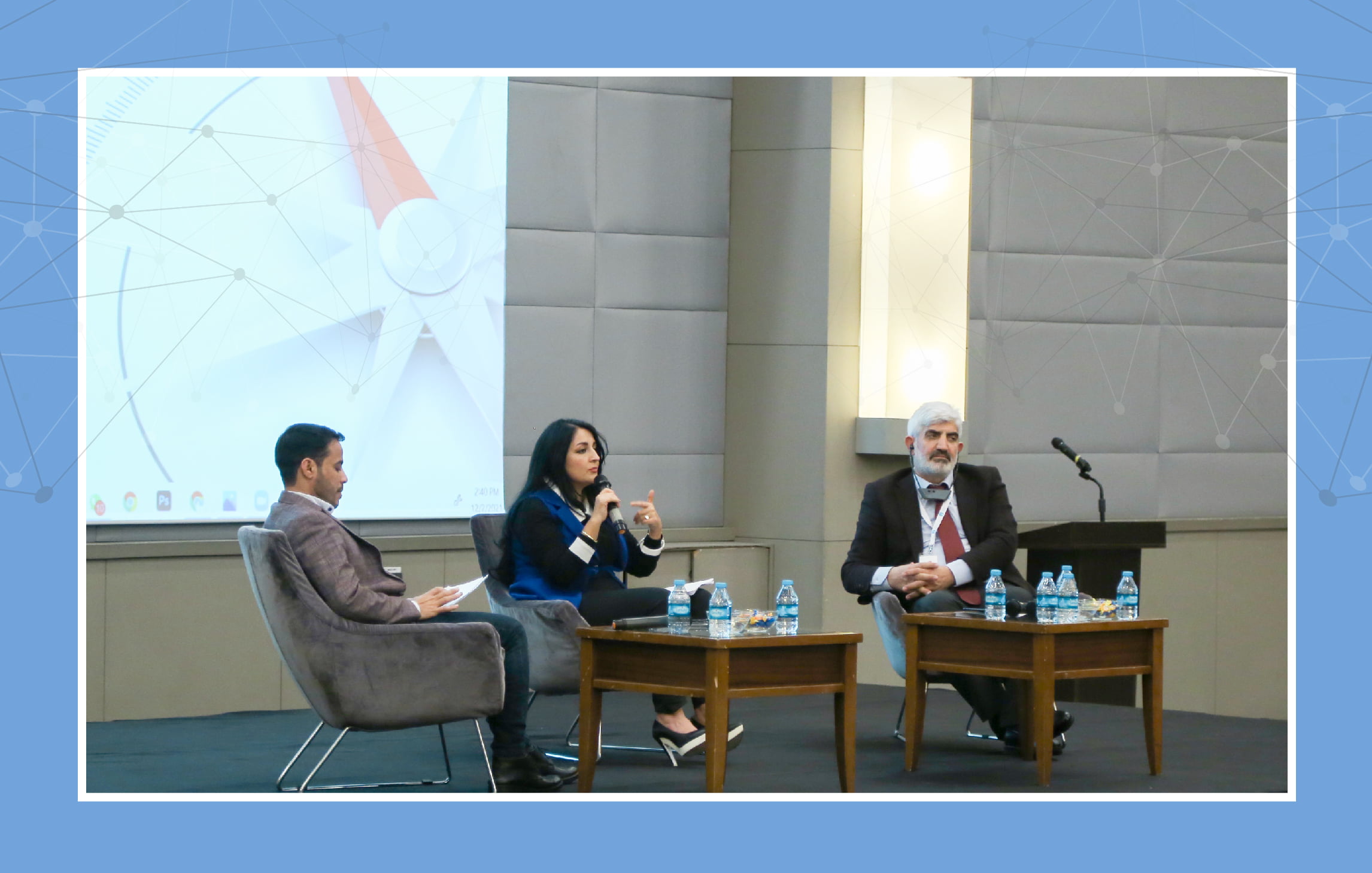Symposium on Yemen’s Economic Challenges Highlights Urgent Need for Reform and Collaboration
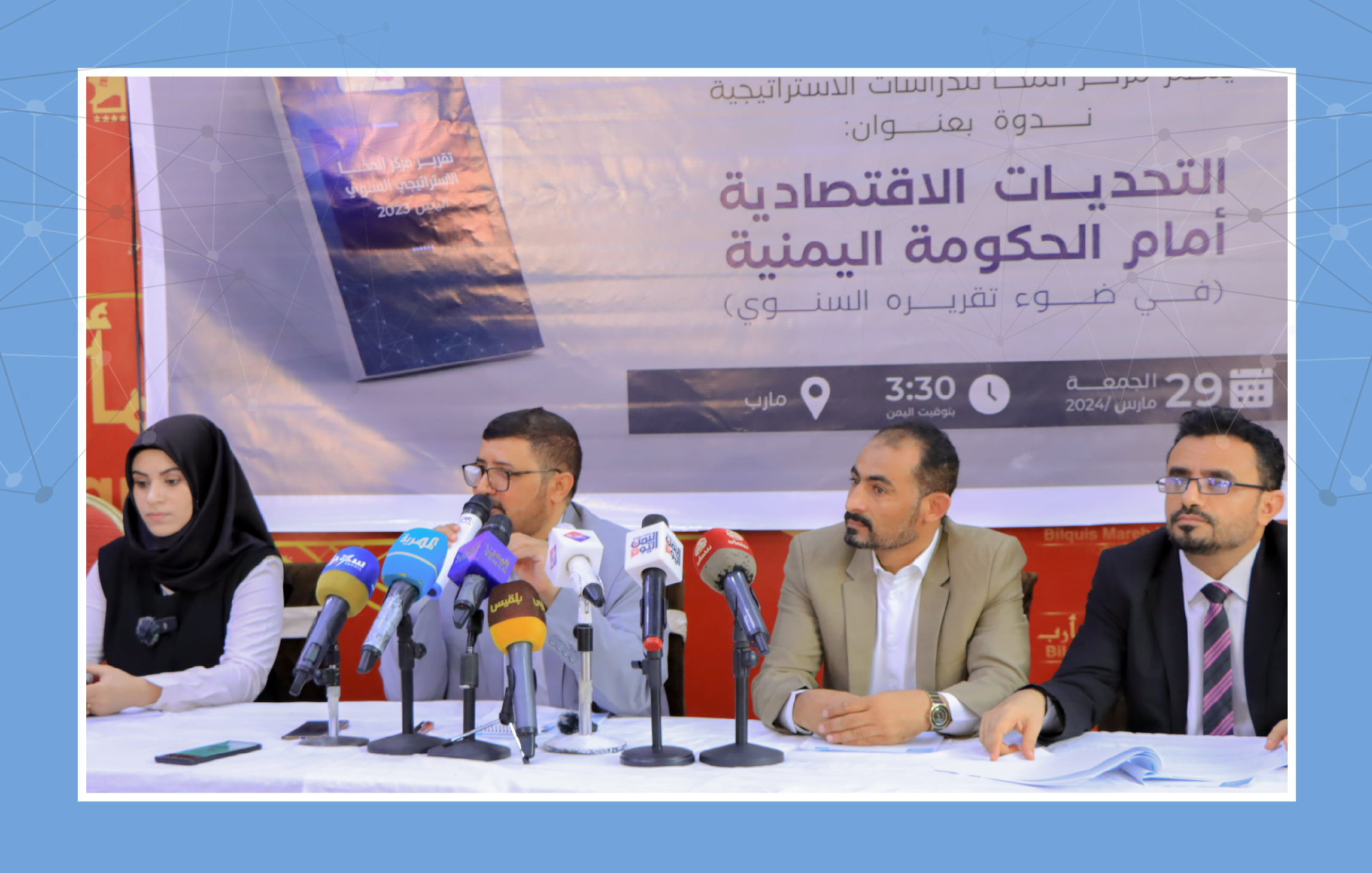
| Getting your Trinity Audio player ready... |
The Mokha Center for Strategic Studies organized a symposium titled “Economic Challenges Facing the Yemeni Government, in light of the strategic report issued by the center. The event, attended by experts, specialists, and civil society representatives, offering comprehensive analyses and constructive recommendations to tackle existing challenges hindering economic stability in Yemen.
The symposium covered significant topics, including the decline in economic performance, complicated political conditions, and the absence of conducive environments for sustainable peace. Participants highlighted the obstacles facing the government’s efforts, including Houthi attacks on commercial ships in the Red Sea and the escalating impacts of climate change.
During the symposium, participants emphasized the critical need for enhanced collaboration between the public and private sectors, stressing the urgency of implementing immediate measures to stimulate economic growth and enhance living standards for Yemeni citizens, with recommendations directed towards both the Yemeni government and the Central Bank of Yemen.
Economic experts presented research papers, addressing various economic challenges, in light of the difficult economic conditions that Yemen is going through.
In the first part of the symposium, economic researcher Hossam Al-Saeedi, who authored the economic study that is part of the center’s strategic report, examined the economic scene of Yemen in 2023. He highlighted a downturn in economic performance, intricate political conditions, and the absence of conducive conditions for sustainable peace.
Al-Saeedi also highlighted key issues on the Yemeni economic agenda, exploring prospects for implementing economic reform programs amidst fragile political and security environments. He also addressed pressing concerns such as Houthi attacks on commercial vessels in the Red Sea and the exacerbating effects of climate change on Yemen.
Dr. Muhammad Yahya Al-Kabsi, Director of the Bank of Saba branch in Marib, led discussions in the second part of the symposium, focusing on “Monetary and financial policies and their role in addressing the economic crisis in Yemen.” Al-Kabsi highlighted significant challenges, particularly the cessation of oil exports, which dealt a severe blow to the government’s primary revenue source. This cessation halted the influx of crucial currency reserves, further exacerbating Yemen’s economic predicament.
In his paper, Al-Kabsi discussed the major challenges that the Yemeni government faces regarding taxes, customs, and the halt in oil exports. He pointed out how these issues have led to a decrease in tax revenue and affected customs collection at seaports due to the cessation of oil exports.
Atef Al-Hashidi, the Director of the Companies Department at the Office of Industry and Trade in Marib, examined the role of the Central Bank of Yemen in stabilizing the economy. He outlined the challenges the Central Bank encounters, its efforts to maintain economic stability, and the primary reasons behind the economic deterioration in Yemen.
Al-Hashidi also proposed several recommendations to improve the Yemeni economic situation. These include urging the government to provide financial and technical support to the Central Bank to enhance its efficiency, intensifying efforts to combat corruption across all government sectors, reducing currency speculation, activating anti-money laundering measures, strengthening oversight and accounting mechanisms, and supporting the agricultural and industrial sectors to help revive the national economy.
Economic journalist Mr. Muhammad Al-Jami discussed the Yemeni government’s struggles in achieving development objectives and combating corruption. He highlighted the challenges of implementing economic reforms amidst precarious political conditions and ongoing conflict.
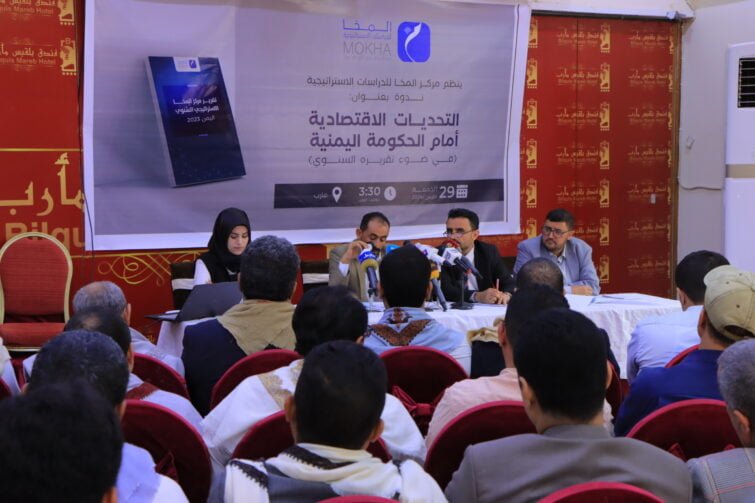
The symposium concluded with several recommendations directed towards the Yemeni government and the Central Bank, urging them to take action. These recommendations include:
- Allocating financial and technical assistance to the Central Bank by the government to enhance its operational efficiency.
- Strengthening government efforts to combat fraud across all sectors, reducing currency speculation, activating the anti-money laundering unit, and reinforcing oversight and accounting measures.
- Collaborating to implement unified monetary policies by the central bank aimed at controlling the exchange rate to stabilize the economic situation.
- Prioritizing the management of Yemeni exports by the government, including the activation of land and sea ports which is crucial for economic recovery.
- Leveraging grants and loans provided to the Central Bank, especially the Saudi grant, to maintain monetary stability and foster balanced economic growth.
- Ensuring adequate liquidity for licensed banks and financial institutions to effectively support the Yemeni economy.
- Working towards securing foreign currency reserves by the Central Bank to enable major merchants and importers to procure basic goods for citizens and consumers.
- Providing support to the agricultural and industrial sectors to play a vital role in revitalizing the national economy.
*The Mokha Center for Strategic Studies, an independent research institution focusing on Yemeni affairs, aims to provide deep analyses and strategic insights on various Yemen-related issues.
